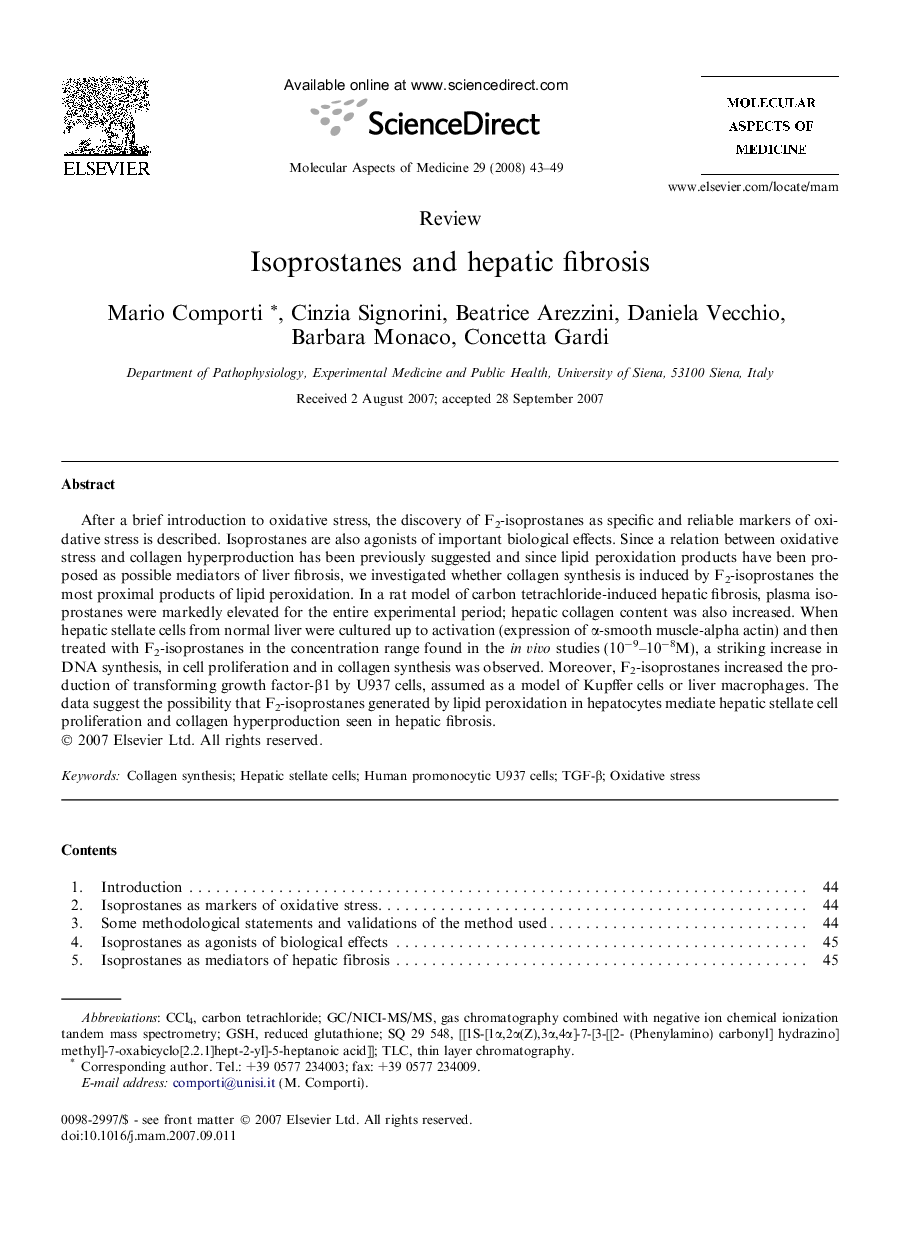| Article ID | Journal | Published Year | Pages | File Type |
|---|---|---|---|---|
| 1995927 | Molecular Aspects of Medicine | 2008 | 7 Pages |
Abstract
After a brief introduction to oxidative stress, the discovery of F2-isoprostanes as specific and reliable markers of oxidative stress is described. Isoprostanes are also agonists of important biological effects. Since a relation between oxidative stress and collagen hyperproduction has been previously suggested and since lipid peroxidation products have been proposed as possible mediators of liver fibrosis, we investigated whether collagen synthesis is induced by F2-isoprostanes the most proximal products of lipid peroxidation. In a rat model of carbon tetrachloride-induced hepatic fibrosis, plasma isoprostanes were markedly elevated for the entire experimental period; hepatic collagen content was also increased. When hepatic stellate cells from normal liver were cultured up to activation (expression of α-smooth muscle-alpha actin) and then treated with F2-isoprostanes in the concentration range found in the in vivo studies (10â9-10â8M), a striking increase in DNA synthesis, in cell proliferation and in collagen synthesis was observed. Moreover, F2-isoprostanes increased the production of transforming growth factor-β1 by U937 cells, assumed as a model of Kupffer cells or liver macrophages. The data suggest the possibility that F2-isoprostanes generated by lipid peroxidation in hepatocytes mediate hepatic stellate cell proliferation and collagen hyperproduction seen in hepatic fibrosis.
Keywords
Related Topics
Life Sciences
Biochemistry, Genetics and Molecular Biology
Biochemistry
Authors
Mario Comporti, Cinzia Signorini, Beatrice Arezzini, Daniela Vecchio, Barbara Monaco, Concetta Gardi,
